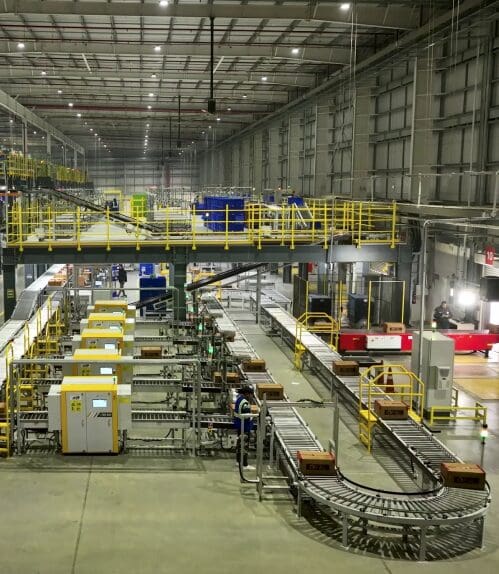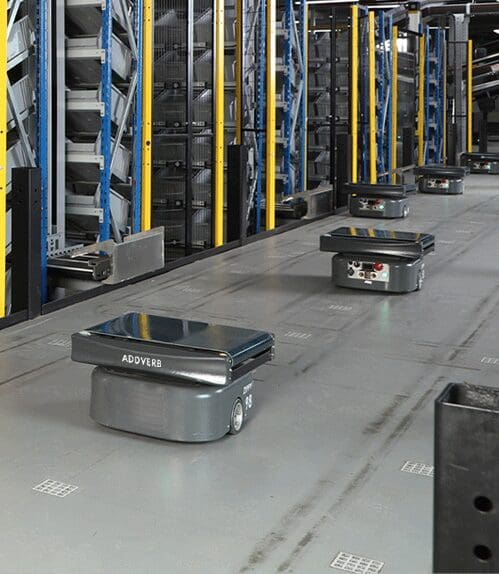Table of Contents
Effective fleet management is crucial for businesses that depend on logistics and transportation in today’s fast-paced environment. Fleet management systems have been a game-changer for businesses due to the features they provide to enhance efficiency, control, and visibility in vehicle operations. In this in-depth blog post, we will look at the world of fleet management systems, learning about their definition, benefits, key traits, components, contribution to efficiency enhancement, integration with present operations, potential future trends, and implementation challenges. By the end, you will be able to succinctly describe how fleet management systems could change the way you operate your vehicles and aid in your success in the logistics industry.
Understanding Fleet Management System
A fleet management system is a complete solution that combines software, hardware, and communication technologies to monitor, track, and manage a fleet of vehicles. It can help businesses make informed decisions, run more efficiently, and provide better customer service. It offers real-time information on the whereabouts, performance, and driving habits of the car.
Many different businesses use fleet management systems, including shipping, construction, public transit, and others. The system’s key objectives are to improve fleet operations, lower operating costs, and increase overall productivity.
Benefits of Fleet Management System
Implementing fleet management in logistics can benefit businesses in a number of ways, including the following:
- Real-time vehicle tracking: Businesses can keep tabs on the whereabouts of their vehicles, which aids in route planning and enables quick responses to changes in delivery schedules.
- Better driving: The system monitors driving behaviours like speeding, braking suddenly, and idle time. By providing drivers with feedback, businesses may encourage safe driving habits, reduce fuel consumption, and save wear and tear on vehicles.
- Greater fuel economy: By optimising route planning and eliminating instances of idling and speeding, businesses can achieve greater fuel economy, which results in cost savings and decreased carbon emissions.
- Maintenance alerts: Fleet management systems offer diagnostics and maintenance notifications, allowing businesses to schedule timely maintenance and avoid costly breakdowns.
- Increased customer satisfaction: Real-time tracking and efficient route planning enable businesses to provide accurate delivery estimates and improve customer service.
Features of Fleet Management System
Fleet management in logistics has a number of components that are designed to increase fleet control and productivity:
- Real-time GPS tracking: Real-time GPS tracking enables businesses to keep an eye on the presence of cars, detours from the intended route, and anticipated arrival times.
- Telematics: Telematics technology is used to collect and transmit data on fuel consumption, driver behaviour, and vehicle performance. By using geofencing, fleet managers are alerted when a vehicle enters or leaves a specified area.
- Monitoring driving behaviour: Monitoring behaviour aids in identifying and promoting safe driving behaviour.
- Maintenance alerts: By informing fleet managers of important maintenance jobs, maintenance alerts help ensure that vehicles are properly maintained and lower the likelihood of breakdowns.
- Fuel management technologies: Utilising fuel management technologies makes it easier to track fuel usage and spot areas for increased fuel efficiency.
Key Components of Fleet Management System
A fleet management system is made up of a number of essential parts that cooperate to offer a comprehensive solution:
- On-board diagnostics(OBD)equipment: These devices are put in cars and collect and send information about how the driver is behaving and how the car is being driven.
- Communication methods: Fleet management systems rely on communication technologies, such as satellite communication or cellular networks, to convey data between the vehicles and the central system.
- Real-time insights: Fleet managers receive real-time information and insights from the central software platform, which processes and analyses the data collected from the cars.
- User Interface: Fleet managers can access and interact with the fleet management system through the user interface, giving them access to crucial controls and information.
Enhanced Efficiency with Fleet Management System
To increase productivity across a range of areas relating to vehicle operations, fleet management solution is crucial:
- Route optimisation: By employing real-time tracking and data analysis to optimise their routes, businesses can cut down on travel time and fuel usage.
- Resource allocation: Fleet management systems assist businesses in more efficiently allocating cars and drivers, ensuring that resources are utilised to their fullest extent.
- Driver productivity: By keeping an eye on driver behaviour, businesses may promote efficient and safe driving practices, which boosts driver output.
- Improved maintenance: Reducing downtime and repair costs by preventing faults through frequent maintenance warnings.
- Customer service: Accurate tracking and delivery estimates boost client satisfaction by providing transparency and dependability in service.
Integrating Fleet Management System with Existing Operations
The strategic integration of a fleet management system with current operations requires considerable thought and solution selection. Movect is a powerful Fleet Management System that Addverb, a pioneer in automation solutions, offers. It was created especially to enhance and streamline various fleet operations.
Future Trends in Fleet Management Systems
Due to continual advancements and improvements, fleet management systems have a promising future. These systems will employ predictive analytics to anticipate maintenance needs and improve vehicle performance:
- Autonomous integration: The integration of autonomous vehicles with fleet management systems will revolutionise vehicle operations, reducing the need for human intervention.
- IoT Integration: The Internet of Things (IoT) will enable seamless communication between fleet management systems, infrastructure, and vehicles, increasing productivity and security.
- Sustainability-related initiatives: The system will place an emphasis on ecologically friendly actions, promoting electric vehicles and renewable fuel sources.
Challenges and Solutions in Implementing Fleet Management Systems
Implementing a fleet management system can indeed be a challenging task due to several factors, such as upfront expenses, employee resistance, and data security concerns. However, with proper strategic planning, employee development initiatives, and strong data encryption and security procedures, these challenges can be effectively addressed. Let’s explore each aspect in detail:
- Upfront Expenses: Implementing a fleet management system typically involves significant upfront costs, including hardware, fleet management software, and infrastructure investments. These expenses can strain the company’s budget and hinder the decision to proceed with the implementation.
- Employee Resistance: Introducing any new system often meets resistance from employees who may fear change, have concerns about job security, or are apprehensive about learning new technologies. To tackle this challenge, it’s essential to involve employees from the early stages of planning and implementation.
- Data Security Issues: Fleet management systems deal with sensitive data, including vehicle tracking information, driver details, and potentially customer data. Ensuring data security and privacy is of utmost importance to avoid data breaches and potential legal consequences. Robust data encryption techniques, access controls, and authentication mechanisms should be implemented to protect data both during transit and storage.
- Strategic Planning: A well-defined strategic plan is crucial for a successful fleet management system implementation. This plan should outline the objectives, timeline, milestones, and key performance indicators (KPIs) for measuring success. It should also consider scalability to accommodate future growth and technological advancements.
- Employee Development: Providing employees with the necessary skills and knowledge to use the fleet management system effectively is essential for its successful adoption. Training programs, workshops, and user guides should be designed to cater to different skill levels and learning styles. Regular feedback and performance assessments can help identify areas where additional training might be required.
- Strong Data Encryption and Security Procedures: To safeguard sensitive data, the fleet management system must incorporate robust encryption and security procedures.
Get a Robust Fleet Management System with Addverb
Addverb’s robust Fleet Management System, Movect, offers centralised control and support for multiple robot fleets from various vendors, effectively coordinating, accurately controlling, and efficiently scheduling their operations. Powered by advanced AI algorithms, it enhances multi-robot path planning for improved traffic control and boosts throughput through optimised robot-task assignments.
The following are some ways that Movect can benefit companies:
- Improved Fleet Coordination: Movect’s sophisticated algorithms successfully coordinate several fleets, ensuring effective workload distribution and minimising idle time.
- Increased Productivity: Movect increases overall productivity and reduces operational delays by selecting the best robot-task combinations.
- Reliable Control: Movect offers fleet-wide real-time control and monitoring, enabling enterprises to make prompt decisions.
Movect’s flexibility to scale with your expanding fleet and adapt to shifting operational needs ensures long-term profitability. The technology is simple to integrate into current operational settings because it adheres to industry norms.
Conclusion
Vehicle operations in the logistics sector have been revolutionised by fleet management systems, which give organisations real-time insights, increased efficiency, and greater control over their fleets. These solutions optimise route planning, lower fuel usage, improve driver’s behaviour, and raise customer satisfaction by leveraging the capabilities of GPS monitoring, telematics, and data analysis.
Explore how a fleet management system can elevate your vehicle operations, leading to a more streamlined, efficient, and competitive logistics business. Embrace the future of fleet management and unlock the potential for greater success in the dynamic world of transportation and logistics.





